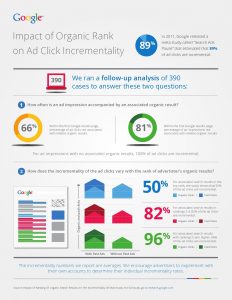In today’s digital age, where competition is fierce and the online landscape is cluttered with countless businesses vying for attention, search engine optimization (SEO) has become an essential tool for business owners. SEO helps businesses improve their visibility and reach in search engine results, driving organic (non-paid) traffic to their websites. However, many business owners are still unfamiliar with SEO and its transformative potential. In this comprehensive guide, we will delve into the intricacies of SEO, demystify its importance, and provide you with actionable strategies to leverage this powerful tool. So buckle up, ignite your entrepreneurial spirit, and get ready to conquer the world of SEO!
The Foundation of SEO: Understanding Search Engines
Before diving into the vast ocean of SEO practices, it is imperative to understand the core mechanics of search engines. Every day, billions of people use search engines like Google, Bing, and Yahoo to find information, products, and services. When a user enters a query, the search engine’s algorithm scours billions of web pages to deliver the most relevant results. The search engine rankings are based on a complex set of factors, ranging from website relevance to user experience.
As a business owner, your goal is to appear on the first page of search engine results for queries related to your industry, products, or services. Studies have shown that the majority of users only click on the top few results, making it crucial to secure a prominent position. To achieve this, you need to optimize your website while adhering to search engine guidelines.
The Holy Grail of SEO: Keywords
Keywords are at the heart of SEO, acting as a bridge between search queries and web content. They serve as verbal cues that search engines latch onto when indexing and ranking web pages. By targeting the right keywords, you can attract highly relevant traffic to your website, increasing your chances of generating leads and conversions.
But a word of caution: keywords should never be stuffed unnaturally into your content. Search engines have become smarter at detecting such keyword manipulation, and penalize websites that engage in such practices. The key to effective keyword usage lies in finding a balance between natural language and aligning with search intent.
To identify ideal keywords for your business, there are numerous tools available, such as Google Keyword Planner, Semrush, and Moz’s Keyword Explorer. These tools allow you to discover keywords that have a high search volume and low competition, enabling you to target untapped opportunities and outrank your competitors.
Expanding Keyword Horizons: Long-Tail Keywords
While generic keywords are widely known and searched for, long-tail keywords have gained prominence in recent years. Long-tail keywords are longer and more specific phrases that narrow down search intent. Although they have lower search volumes, they often exhibit higher conversion rates due to their specificity. Incorporating long-tail keywords within your content can provide a competitive edge and attract niche audiences actively seeking your offerings.
For instance, instead of targeting the broad keyword “digital marketing agency,” consider using a long-tail keyword like “best digital marketing agency in Chicago.” By matching your target audience’s search behavior, you increase the likelihood of attracting qualified leads who are primed and ready to engage with your business.
Optimizing On-page Elements for Higher Rankings
Apart from incorporating keywords, several on-page elements play an important role in SEO, signaling to search engines what your web pages are about. When optimizing these elements, keep user experience at the forefront of your mind. Some essential on-page elements to focus on include:
Titles and Headings
Crafting compelling titles and headings that incorporate relevant keywords can significantly impact your search rankings. Keep them concise yet descriptive, grabbing potential visitors’ attention and enticing them to click.
URL Structure
A clean and concise URL structure demonstrates professionalism and helps users navigate your website effortlessly. Including relevant keywords in your URLs can also boost your visibility in search engine results.
Meta Descriptions
Meta descriptions are concise summaries of a web page’s content that appear in search engine results. Similar to an advertisement, they act as snippets enticing potential visitors to click through to your website. Ensure that your meta descriptions are engaging, include relevant keywords, and accurately depict your page’s content.
Image Optimization
Search engines not only crawl text-based content, but they also identify images using alt tags. Optimizing your images by providing descriptive alt tags improves accessibility and helps search engines understand what your images represent. Moreover, you may consider compressing images to reduce page load times, another crucial factor in search engine rankings.
Enhancing Usability and User Experience
Search engines value providing users with a seamless browsing experience. To satisfy these expectations, you must focus on making your website user-friendly and intuitive. Here are a few critical aspects to consider:
Mobile Responsiveness
With the surge in mobile device usage, search engines now prioritize mobile-friendly websites. Ensure that your website design is responsive so that it adapts seamlessly to different screens, providing visitors with a consistent and engaging experience across devices.
Site Speed
It only takes a split second for a visitor to lose interest due to slow loading speed. Regularly assess and optimize your website’s performance, focusing on image optimization, caching techniques, and utilizing content delivery networks (CDNs). Providing a quick and efficient browsing experience will not only enhance your search engine rankings but also reinforce brand trustworthiness.
Clear Navigation and Structured Data
A well-organized website with clear navigation allows users to effortlessly locate specific information, boosting their overall browsing experience. Additionally, incorporating structured data markup (such as Schema.org) further aids search engines in understanding your content, potentially enabling rich snippets to appear in search results.
Cultivating an Effective Backlink Profile
The number and quality of websites linking to your website significantly impact your search engine rankings. Backlinks act as a vote of confidence, signaling to search engines that your website is reputable and trustworthy. However, not all backlinks are beneficial; search engines acknowledge and value quality over quantity.
To accumulate worthwhile backlinks, consider the following strategies:
Content Marketing
Creating high-quality, informative, and shareable content can naturally attract backlinks from other websites. Develop a content marketing strategy that fosters trust and solidifies your brand’s authority within your industry.
Guest Blogging
Reach out to authoritative websites related to your industry and offer to write guest posts. By contributing valuable insights and expertise, you can secure backlinks and tap into the existing audience of these websites.
Influencer and Partner Collaborations
Teaming up with industry influencers or complementary businesses for collaborations can result in mutually beneficial relationships. Besides widening your reach and exposure, collaborations often result in valuable backlinks from reputable sources.
Monitor, Measure, and Optimize
Implementing solid SEO practices is just the starting point. Continuously monitoring and measuring your SEO performance allows you to make data-driven decisions and optimize your strategy accordingly. Leverage tools like Google Analytics and Google Search Console to gain invaluable insights into organic traffic, keyword performance, and user behavior.
Regularly assess your website’s performance using relevant metrics such as organic traffic, bounce rate, time on page, and conversion rates. Identify areas where you can fine-tune your strategy, and prioritize resources based on data-backed insights. SEO is an ever-evolving field, and adaptability is key to maintaining a competitive edge.
Conclusion: Your Path to SEO Success
As a business owner, investing







